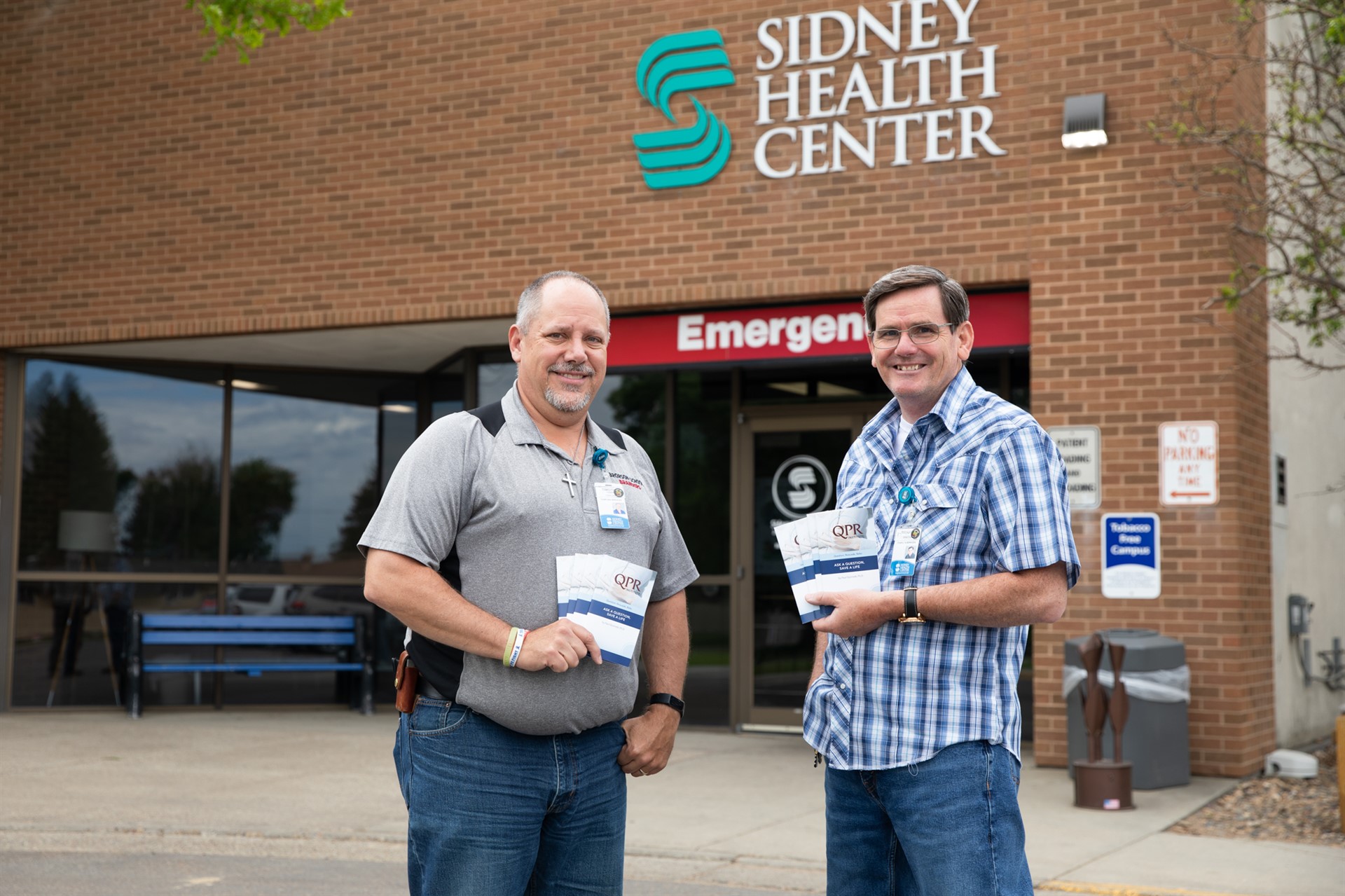 Sidney Health Center is proud to announce that 393 of its employees have successfully completed Question, Persuade, and Refer (QPR) training, equipping them with essential skills to address and prevent suicide within the community. This significant achievement underscores the organization’s commitment to enhancing mental health support in Richland County, particularly given Montana's high suicide rates.
Sidney Health Center is proud to announce that 393 of its employees have successfully completed Question, Persuade, and Refer (QPR) training, equipping them with essential skills to address and prevent suicide within the community. This significant achievement underscores the organization’s commitment to enhancing mental health support in Richland County, particularly given Montana's high suicide rates.
Richard Evans and Tim Tharp were instrumental in establishing the training program at Sidney Health Center. Both individuals have completed the QPR Gatekeeper Instructor Certification Program, which includes key objectives such as:
- Training participants to teach QPR Gatekeeper Training for Suicide Prevention
- Understanding the nature and range of suicidal communications
- Knowing the groups at greatest risk of suicide and why QPR can work for them
- The history of suicide and suicide prevention
- Gatekeeper training: how, why, and the research behind it
- New and promising approaches to suicide prevention
- How QPR fits into national efforts
“QPR is an anti-suicide initiative designed to give members of the public the skills necessary to intervene on behalf of an individual who is suicidal,” explains Richard Evans, a certified QPR trainer and chaplain at Sidney Health Center. “The goal is to train staff to recognize factors that may lead to suicidal ideation or behavior and help those individuals make a life-affirming choice by connecting them with local resources.”
As one of the largest employers in Richland County, Sidney Health Center is committed to training all its employees to address mental health and wellness in the community. During April and May, approximately 70% of the workforce attended these trainings and became QPR-certified. Moving forward, Sidney Health Center will offer this certification course to new employees on a quarterly basis.
QPR training teaches individuals to recognize the warning signs of a suicide crisis and how to intervene effectively by questioning, persuading, and referring someone to appropriate help. The benefits to the community include:
- Immediate Crisis Intervention: QPR-trained individuals can recognize and respond to suicide warning signs, helping to prevent attempts and save lives.
- Increased Awareness: The training raises awareness about suicide and its warning signs, leading to a more vigilant and supportive community.
- Reduced Stigma: Open discussions about mental health and suicide help reduce stigma, encouraging more people to seek help.
- Stronger Support Networks: Trained individuals can offer vital support to friends, family, and colleagues, enhancing the community's overall support system.
- Empowered Community Members: People feel empowered to make a positive difference, fostering a sense of responsibility and collective action.
- Enhanced Behavioral Health Services: QPR certification complements other mental health initiatives, creating a comprehensive approach to care.
- Long-Term Mental Health Improvement: Early intervention leads to better mental health outcomes and overall well-being.
- Collaboration with Health Services: Certified individuals can connect those in crisis with appropriate resources and support services.
- Community Resilience: A community with many QPR-certified individuals is better prepared to handle mental health crises, leading to a safer and more supportive environment.
These benefits demonstrate the positive impact QPR training can have on the well-being of our community. For more information about the QPR training program, contact Richard Evans at 406.488.2596.
